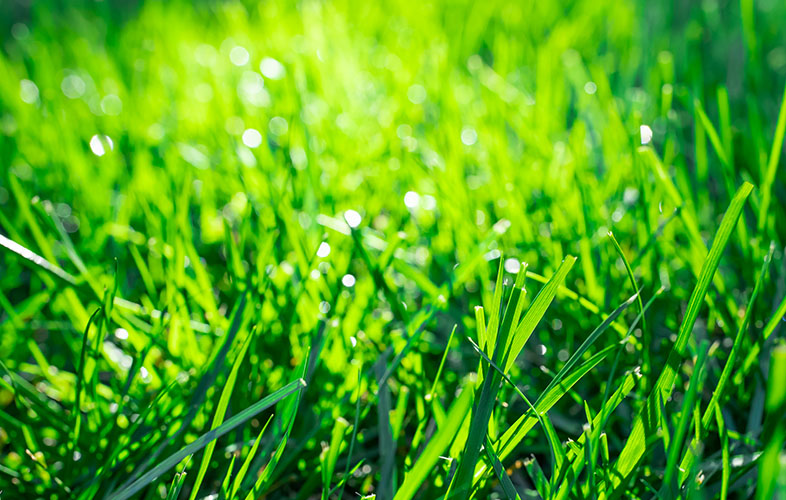While preventing any damage during winter is important, you will also want to keep an eye out for any unexpected damage to your lawn. The most common to occur during winter months is desiccation, also called winterkill. This often occurs when turf is unprotected by snow cover and subject to drying cold winds. Under these conditions, the exposed turf can lose significant moisture in crown tissues.
To prevent desiccation, continue to water lawns into the fall if it hasn’t rained at least once a week. You don’t want your lawn to go into winter in a drought stressed condition. A good rule of thumb is to water your lawn when it is still above 40 degrees with no rain in the forecast.
While there is a lot to keep up with when maintaining your lawn in the winter, not all damage occurs from ice. Keep an eye out for winter pests like The Winter Grain Mite. The activity and damage caused by this mite are restricted to the winter months, meaning Winter Grain Mite damage is often mistaken for snow mold or winterkill. You may want to look into something like Perimeter Pest Control to rule out these nasty pests during the winter season.



 Branch Finder
Branch Finder













 Back to all blogs
Back to all blogs
Facebook
X
Copy Link
Email